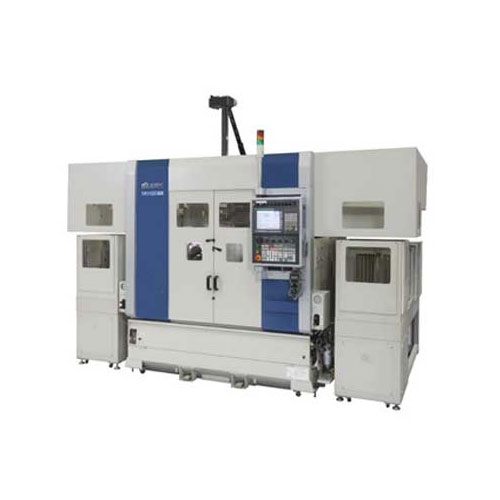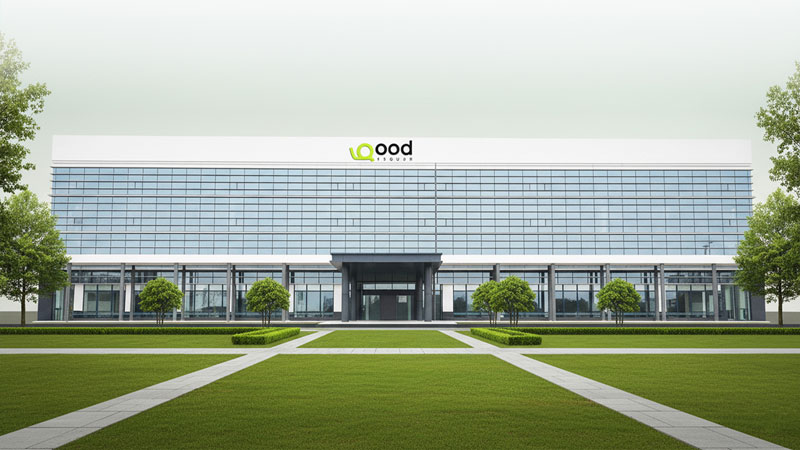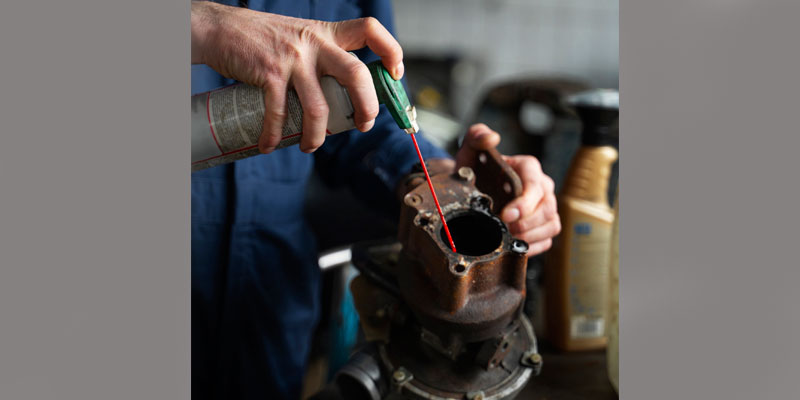Schedule a Call Back
Autonomous mobile robots play a crucial role in interconnected workstations”
 Articles
Articles- Mar 01,24

The Robotics & Discrete Automation, ABB India is a serving as the primary provider for leading solutions in India for over 25 years. In this interview, Subrata Karmakar, President, Robotics & Discrete Automation, ABB India shares his valuable insights on the manufacturing sector in India and and also challenges that needs to be tackled.
Could you please brief us about ABB's Robotics and Discrete Automation division in India? How has it grown over the last few years?
ABB Robotics & Discrete Automation stands out as a premier provider in robotics and machine automation globally, offering a unified range of solutions encompassing robots, Autonomous Mobile Robots (AMRs), and machine automation. Backed by our innovative software, we tailor comprehensive offerings to enhance efficiency and agility across various industries which include automotive, electronics, and logistics. Our aim is to empower companies, irrespective of their scale or sector, to adapt to the evolving landscape by fostering resilience and flexibility. We're committed to assisting customers in their journey towards the interconnected and cooperative factory of tomorrow.
ABB Robotics has established itself as the primary provider of solutions in India for over 25 years, boasting extensive experience in palletising for more than two decades. ABB Robotics stands as one of the top two providers of robotics solutions in the country, whether measured by units sold or the value of applications. For nearly 25 years, we have been the foremost supplier of robots and robot systems with the support of widespread sales and service network spanning the nation.
When assessing our market presence in terms of volume and value, we confidently assert ourselves as leading suppliers of robots, robot systems, and comprehensive solutions for machines and factories.
ABB Robotics holds the dominant position in delivering robotic automation solutions to India's two-wheeler segment, capitalising on the automotive industry's significant adoption of robotic solutions. Moreover, segments such as food and beverage, consumer packaged goods, electronics, and logistics are witnessing a rapid uptake of robotics.
ABB's R&D team in India collaborates closely with the global R&D team to pioneer next-generation embedded software applications and digital solutions, exemplified by initiatives like remotely monitoring 8,000 robots across 40 countries. In recent years, ABB Robotics has experienced substantial growth both in sales and the expansion of its manufacturing footprint. This growth trajectory is particularly evident in the Indian unit's significant contributions to the division's global business and initiatives.
What kinds of changes are you witnessing on the shopfloor today compared to a decade before?
The evolution of technology and the emergence of the Internet of Things (IoT) have led to a notable transformation on shop floors compared to a decade ago. This transformation isn't merely a passing trend; rather, it signifies a necessary progression towards digitisation aimed at enhancing the efficiency, productivity, and profitability of manufacturing plants.
Furthermore, there is a pronounced trend towards collaborative applications, particularly evident in the accelerated adoption of cobots. These collaborative robots offer significant growth opportunities, driven by their user-friendly nature and their suitability for small and medium-sized enterprises (SMEs), among others.
Moreover, new segments such as logistics and healthcare are emerging as significant players in the realm of robotics, alongside retail and restaurants. The increasing accessibility of user-friendly robots is fostering growth within SMEs, representing a segment with considerable potential for expansion. In the domain of machine automation, there is a notable expansion in offerings, including track systems, machine-centric robotics, and vision technology, all of which are experiencing rapid growth.
Lastly, there is a growing demand from end-users for integrated machine automation solutions that offer both flexibility and productivity simultaneously, indicating a shift towards more comprehensive and efficient operational practices on today's shop floors compared to a decade ago.
What are the key obstacles of Indian manufacturing sector today? How is ABB helping them solve some these challenges?
In today's Indian manufacturing sector, key challenges include enhancing productivity, flexibility, and adaptability to meet evolving market demands. ABB Robotics addresses these pain points by offering intelligent robotics solutions that extend beyond traditional manufacturing. These solutions cater to various high-growth segments such as healthcare, logistics, food and beverage, construction, and retail, including ecommerce. As a global leader in industrial automation, ABB's Machine Automation Division integrates state-of-the-art technology and advanced engineering to develop, manufacture, and distribute complete solutions. These encompass industrial electronics, software, mechatronic solutions, as well as technologies tailored for machine and factory automation, thereby assisting Indian manufacturers in overcoming their challenges and achieving operational excellence.
Is robotic density increasing in India? Do you have any data points to prove it? Which industries are driving robot demands?
In 2021, India experienced a remarkable surge in industrial robot sales, with a record 4,945 units installed, marking a 54 per cent increase from the previous year's 3,215 units in 2020. This elevated India to the tenth position globally in terms of annual installations, as reported by the International Federation of Robotics (IFR). The integration of robotics and automation has significantly enhanced workplace safety, efficiency, and productivity. For instance, according to the International Trade Administration, a 1 per cent increase in robot density correlates with a 0.8 per cent rise in productivity. Industries adopting robotics have witnessed substantial productivity gains, particularly in sectors where automation was just beginning to be implemented.
The most notable growth in this domain is observed in general industry and small to medium-sized enterprises . This growth trajectory is propelled by the availability of smaller, more cost-effective, and user-friendly robots, exemplified by ABB's Cobot family. These robots play a pivotal role in automating repetitive, hazardous, or unclean tasks, thereby minimising the need for human involvement in potentially dangerous activities and enabling employees to focus on more rewarding and cognitive tasks.
SMEs make major contribution to manufacturing in India. Why the adoption level of advanced automation solutions low in SMEs? Is the situation improving? (If yes, please cite some examples)
While SMEs and MSMEs play a crucial role in India's manufacturing sector, their adoption of advanced automation solutions has been limited. One of the primary challenges faced by these sectors in embracing factory automation, digitisation, and robotics is the need for mindset calibration regarding cost and complexity.
There exists a misconception that integrating robotics requires extensive engineering and programming expertise, deterring many SMEs and MSMEs from exploring these technologies. However, the reality is quite different. Modern robots are designed to be user-friendly, with features such as lead-through programming that allow end-users to program and deploy robots within minutes, without specialized training. This ease of use significantly reduces barriers to entry for new users and markets.
Despite these challenges, there is a noticeable improvement in the adoption of automation solutions among SMEs. Many SMEs in sectors like pharmaceuticals and electronics in India are increasingly deploying robots and cobots to capitalize on the benefits of automation. These technologies make tasks safer, cleaner, and more efficient, particularly for repetitive tasks. As a result, small to medium sized enterprises are experiencing tangible benefits from automation solutions, showcasing a positive shift towards embracing advanced automation technologies in the sector.
What are the key hurdles before Indian manufacturers when adopting automation and robotics? How can they overcome them?
Indian manufacturers face several key challenges when adopting automation and robotics. These include the need to adapt to changing consumer behavior, such as the rapid growth of e-commerce and increasing demand for product variety and customisation. Additionally, they must navigate uncertainties stemming from geopolitical issues, supply chain disruptions, and the transition to electric vehicle manufacturing for sustainable transport. Furthermore, they must address labor and skills shortages, exacerbated by an aging global population. To successfully overcome these hurdles in a sustainable and economically viable manner, Indian manufacturers must focus on addressing the entire value chain. While automation has traditionally emphasised productivity and quality improvement, today's landscape requires a shift towards prioritising flexibility and simplicity for success. This is possible with adoption of automation across processes. Flexibility is now a strategic imperative across manufacturing, logistics, and consumption points, underscoring the need for agile and adaptable automation solutions in the Indian manufacturing sector.
How big is (or will be) the impact of AI on the manufacturing sector?
The impact of AI on the manufacturing sector is significant and expected to grow substantially. AI enhances efficiency, reliability, productivity, and notably, the flexibility of production and logistics processes. Autonomous mobile robots play a crucial role by operating independently and navigating materials, components, and finished products among intelligent, interconnected workstations. This innovation replaces traditional linear production lines with fully flexible networks, enabling companies to adapt quickly to changing demands. This will lead to data drives processes where autonomous systems, leveraging AI, autonomously adjust their behavior to production requirements based on the data they collect. This advancement paves the way for the next generation of flexible manufacturing, revolutionising the industry's operations and capabilities.
Related Stories

We are committed to strengthening India made equipment: Abhishek Bohra
In this interview, Abhishek Bohra, Partner, BXL Enterprise, shares the enterprise’s evolution in limit switches, manufacturing strengths, sectoral demand, reliability strategies, safety trends, MS..
Read more
India–EU FTA sealed, offers preferential EU access to over 99% of Indian exports
The agreement is expected to be particularly transformative for labour-intensive sectors and MSMEs, with positive spillovers for employment generation among women, artisans, youth and professionals.
Read more
Why SMEs are central to India’s manufacturing future in a VUCA world
Global manufacturing is shifting from cost-led sourcing to resilience, quality and trust, placing Indian small and medium enterprises (SMEs) at the centre of Make in India’s next growth phase, wri..
Read moreRelated Products

Compact Fmc - Motorum 3048tg With Fs2512
Meiban Engineering Technologies Pvt Ltd offers a wide range of Compact FMC - Motorum 3048TG with FS2512.

Digital Colony Counter
Rising Sun Enterprises supplies digital colony counter.
Robotic Welding SPM
Primo Automation Systems Pvt. Ltd. manufactures, supplies and exports robotic welding SPM.
















